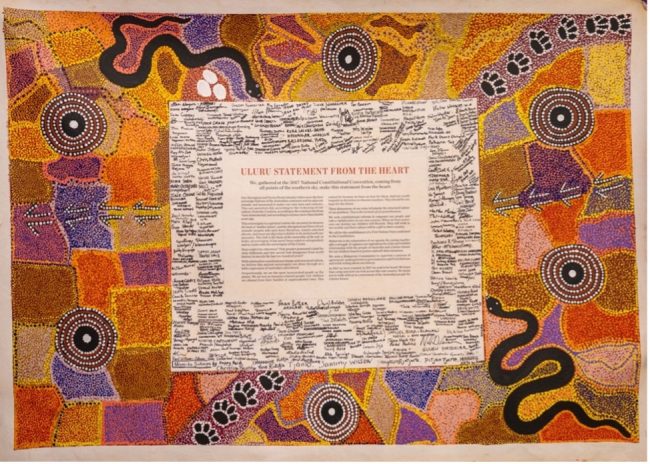Our vision for reconciliation and justice in Australia is an inclusive community built on mutual respect, real opportunities and strong relationships with First Nations Peoples and communities. As people around Australia prepare for a national referendum on the proposal for a First Nations Voice to Parliament, we hope that this page will help to promote their access to the information necessary for an informed and respectful conversation.
HAG is committed to making space for our staff to engage with the histories, cultures, and priorities of Indigenous people in Australia and to creating a space to reflect on our own awareness and the ways HAG can better shape engagement with First Nations peoples and communities. As a business, we believe that we can learn much from the diverse knowledge and talents of First Nations people. As a member of the humanitarian sector, we believe that respectful and meaningful partnerships are key to driving positive and sustainable change. HAG seeks opportunities to support First Nations-owned businesses and pays the rent.
TEXT

The Uluru Statement from the Heart represents the culmination of the most proportionally significant consultation process of First Nations people seen to date in Australia. Following 12 regional dialogues and 1 regional meeting over 2016-2017, it was endorsed at a National Constitutional Convention at Uluru in 2017. The Statement extends an invitation to walk with Aboriginal and Torres Strait Islander peoples in a movement for a better future, grounded in recognition of Indigenous sovereignty.
It calls for three things: a Voice through which First Nations people can speak to parliament, a process of treaty-making, and a process of truth-telling, both supervised by a Makarrata Commission (to support the coming together after a struggle). Current discussions are mostly focused on the ‘voice’ element.
You can read the Statement and learn more about it here. You can listen to a version of it being read here and find translations of the Statement here.
The Voice is one response to the calls for political recognition and representation that First Nations elders and activists in Australia have been making for decades. It is consistent with international frameworks such as the United Nations Declaration on the Rights of Indigenous Peoples, which Australia has endorsed.
HAG’s support for the Voice is also linked to our own principles as an organisation working in the humanitarian sector. Self-representation and participation – the right to be part of decision-making when you are affected by it – are important ethical and governance principles to which we are committed.
1) Gabrielle Appleby & Eddie Synot, ‘The Voice: what is it, where did it come from, and what can it achieve?’ The Conversation, 29 March 2023. Gabrielle Appleby researches and teaches public law and provided constitutional consultation to the deliberative process leading to the Uluru Statement from the Heart. Eddie Synot is a Wamba Wamba First Nations person and an Indigenous academic lawyer and researcher.
2) Harry Hobbs, Heidi Norman & Matthew Walsh, ‘What actually is a treaty? What could it mean for Indigenous people?’ The Conversation, 3 April 2023 (the second article in a series on Voice, Treaty and Truth). Harry Hobbs is a constitutional law specialist. Heidi Norman researches Aboriginal political history and is from the Gomeroi nation. Matthew Walsh is an Anaiwaan man and a specialist in Indigenous policy engagement and implementation.
3) Julia Hurst & Sarah Maddison, ‘First Nations people have made a plea for ‘truth-telling’. By reckoning with its past, Australia can finally help improve our future,’ The Conversation, 11 April 2023. Julia Hurst’s Indigenous heritage crosses Dharawal and Darug land and her research explores questions of Australian Aboriginal identity. Sarah Maddison studies settler colonial politics in Australia and other contexts.
Here we share some resources to help understand potential impacts on First Nations people and how allies can seek to engage constructively.